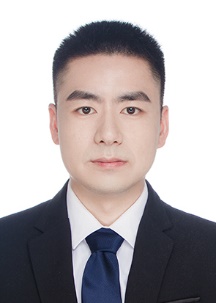Xi Chen, vice-dean of School of Information Science and Engineering, associated professor. Dr Chen received the B.S. degree in automation from the Huazhong University of Science and Technology, Wuhan, China, in 2009 and the M.S. degree in information science and technology from Xiamen University, Xiamen, China, in 2012, and the Ph.D. degree in electrical engineering from the University of Newcastle, Callaghan, NSW, Australia, in 2015. In 2015, he joined the Wuhan University of Science and Technology, Wuhan, China. His research interests include coverage of sensor network, multiagent systems, and nonlinear system control. Email: chenxi_99@wust.edu.cn

Tianyu Chen (S’17-M’21) received the B.S. degree from Huazhong University of Science and Technology, Wuhan, China, in 2014, and the M.Eng. degree from Texas A&M University, College Station, in 2017, and the Ph.D. degree from University of Texas at Dallas, Richardson, in 2020. From 2017 to 2020, he was working as a research assistant at the Renewable Energy and Vehicular Technology (REVT), University of Texas at Dallas, Richardson. Since 2020, he joined Wuhan University of Science and Technology, Wuhan, China. His research interests include integrated motor drive systems, renewable energy generation systems, and advanced power electronics systems. His Email address is chentianyu@wust.edu.cn.
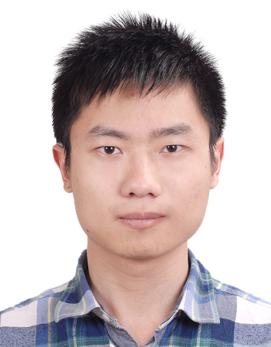
Yang Chen,a professor at the School of Information Science and Engineering, Wuhan University of Science and Technology. He earned his PhD from the State Key Laboratory of Robotics at the Shenyang Institute of Automation, Chinese Academy of Sciences. His research focuses on the modeling, planning, and control of mobile robots, with a particular emphasis on multi-robot collaborative path planning. His work addresses applications such as persistent monitoring, emergency rescue, agricultural spraying, building inspection, and road patrols. The decision-making processes for these robots are challenged by various uncertainties, including unreliable communication between robots, road network congestion, obstacles, battery levels, adverse weather conditions, and electronic and mechanical failures. To address these challenges, optimal decision-making for robots must incorporate resilient features such as robustness, redundancy, fault tolerance, and flexibility.
Email: chenyag@wust.edu.cn
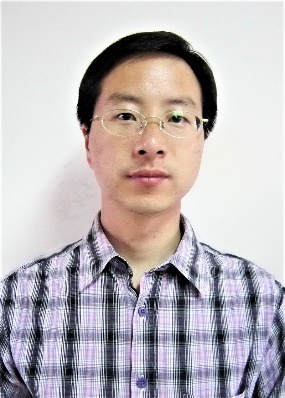
Zhihuan Chen received his PhD degree from Huazhong University of Science and Technology (HUST), China, in 2017. He is currently an associate professor at the School of Information Science and Engineering/School of Artificial Intelligence in Wuhan University of Science and Technology (WUST), China. From Oct 2015 to Oct 2016, he served as a joint PhD student sponsored by China Scholarship Council at The University of Western Australia (UWA), Australia. From Jan 2021 to Jan 2023, he worked as a visiting scholar in City University of HongKong (CityU) sponsored by the National Postdoctoral Foundation and HongKong Society of Scholars.
His main research interests include controller design and path planning of wheeled mobile robot and aerial flying robot. He has over 30 SCI papers published in various excellent journals, where four of them are top 1% highly cited rank papers. He served as a reviewer for the journals of Applied Soft Computing、Expert System with Application、the Journal of Franklin Institute, etc. He has hosted National Natural Science Foundation of China (Youth Program), Postdoctoral Fund General Program, Natural Science Foundation of Hubei Province in the past years. More details of his group research output can be found in https://iris.wust.edu.cn/info/1981/1591.htm and https://space.bilibili.com/487019842?spm_id_from=333.1007.0.0
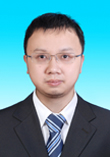
Lei Cheng , born in June 1976, native of Wuhan, PhD, professor, the head of the Robotics Engineering program at Wuhan University of Science and Technology. He also serves as a standing committee member of the Youth Work Committee of the Chinese Society of Artificial Intelligence, a standing committee member of the Intelligent Robotics Professional Committee of the Chinese Society of Artificial Intelligence, a committee member of the Intelligent IoT System Modeling and Simulation Professional Committee of the China System Simulation Society, a council member of the Hubei Automation Society, a council member of the Hubei Artificial Intelligence Society, and a standing council member of the Wuhan Automation Society. He was a visiting scholar at the Department of Education, Peking University, and a visiting scholar at the University of the West of England. He is a model teacher and a three-education exemplar at Wuhan University of Science and Technology, and has won the Wuhan University of Science and Technology's Outstanding Guidance Teacher Award and the first prize in the school's teaching innovation competition. He has been selected for the New Century High-level Talent Program of Hubei Province, and has been awarded the title of Wuhan Hongshan District's "Top Ten Outstanding Youth". He has won 10 international and domestic academic paper awards, a second-class national teaching achievement award, and two first-class provincial teaching achievement awards. In recent years, he has guided his students to win more than 10 national awards in the "Challenge Cup", "Create Bright Future", the National University RobotCon and Robomaster competitions.
Research interest:
Robotics and Intelligent Sensing, Artificial Intelligence
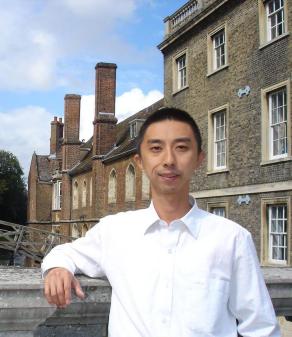
Yongzhi Cheng received his Ph.D in microelectronics and solid state electronics from Huazhong University of Science and Technology(HUST), China, in 2015.For one year from 2013-2014, he worked as a visiting PhD student in T-ray Labs of the Universityof Adelaide, where he studied and designed metamaterial plasmonic devices for terahertz waves. From 2022, he is a full professor in Wuhan University of Science and Technology (WUST), China. For one year from 2022-2023,he is a guest professor in EM Labs of Nagoya Institute of Technology(NIT), Japan. His current research interests include areas of microwave, terahertz, optical and physics, metamaterial/metasurface microwave devices including filter, antenna, absorber, etc. He is selected the Elsevier highly cited Chinese researchers in 2020-2023, China 2021 top citedpaper award in IOP Publishing's physics journals, and 2022 best paper award article (rank 1) in an Open Access Journal by MDPI. He has authored over 230 peer-reviewed journal articles, which have been cited by more than 10100 times (H-factor 63;Google Scholar). He served as aguest editor for the nanomaterials (Open Access Journal by MDPI) on special issue in 2022.

Mian Hu received the B.S. degree in automation from the Wuhan University of Technology, China, in 2015, and the Ph.D. degree in control theory and control engineering from the Huazhong University of Science and Technology, China, in 2020. She is currently a lecturer with the School of Information Science and Engineering/School of Artificial Intelligence, Wuhan University of Science and Technology, China. Her research interests include demand response, game theory, energy management and optimal dispatching for smart grid, multi-robot collaborative path planning. She was awarded the title of “Chutian Scholar” of Hubei Province in 2023. She has authored or coauthored more than 10 technical papers on journals and conferences. She is currently hosting two projects supported by the National Natural Science Foundation of China and the Natural Science Foundation of Hubei Province of China. E-mail: humian@wust.edu.cn.
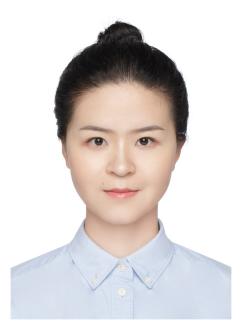
Weigang Li, Level-2 Professor, doctoral supervisor, Chutian Scholar Distinguished Professor, Director of Engineering Research Center of Metallurgical Automation and Measurement Technology Ministry of Education. Prof. Li is the First Completer of the First Prize of Hubei Provincial Science and Technology Progress Award, member of Provincial Concentric Academician and Expert Service Group, Provincial Science and Technology Specialist, director of Provincial Automation Society, member of Metallurgical Automation Branch of Chinese Society of Metals, and member of Chinese Automation Society's Application Specialized Committee. Prof. Li is also an expert in the evaluation of the National Natural Science Foundation of China (NSFC) top-level projects, the Ministry of Industry and Information Technology (MIIT) science and technology projects, and an expert in the evaluation of science and technology programs in Hubei/Jiangxi/Guangdong/Jiangsu Provinces. His primary focus is: 1) industrial process modeling, control and inspection; 2) artificial intelligence and machine learning algorithms; 3) robot positioning and navigation, 3D machine vision.
He has undertaken more than 30 top-level projects of National Natural Science Foundation of China, Hubei Province's unveiling system of science and technology projects, provincial key research and development programs and joint research and development projects between schools and enterprises, and his achievements have been applied online in many large central enterprises, such as China Baowu Group, with remarkable economic and social benefits. He has published more than 80 papers in core journals at home and abroad, and authorized more than 30 Chinese/US invention patents. He was awarded the first prize of Hubei Provincial Scientific and Technological Progress, two Wu Wen Jun AI Science & Technology Award,one China Metallurgical Science and Technology Award, and two Major Achievement Awards for Technological Innovation of China Baowu.
Prof. Li is recruiting Ph.D. and M.S. students in the direction of Artificial Intelligence, Machine Learning, SLAM, and 3D Machine Vision. The lab is well-funded and equipped with advanced high-performance computing GPU servers. We welcome automation, computer, and math-related majors with good programming foundation to apply for graduate school.
Mail address: liweigang@wust.edu.cn
Qian Su received Ph.D. from the national key discipline of "Testing Technology and Automation Device" in Control Science and Engineering of Tianjin University. Now working in Wuhan University of Science and Technology, she was awarded the "Chutian Scholar Program" of Hubei Province. The main research interests are on-line detection technology and intelligent system, complex process detection and modeling analysis; multiphase flow measurement technology and information processing research. She has presided over National Natural Science Foundation of China (NSFC), Natural Science Foundation of Hubei Province, China Postdoctoral Science Foundation and Wuhan Knowledge Innovation Special Dawn Project. As a main participant, she researches on National Natural Science Foundation instrument Project, National Natural Science Foundation projects, and Tianjin science and technology innovation system and condition platform construction project. She provides measurement models and testing methods for the engineering realization of multiphase flow process parameter detection. As the first author, she has published more than 10 papers in high-level international academic journals such as IEEE Sensors Journal, Measurement Science and Technology, Journal of Central South University (Natural Science Edition) and others. She officially published conference papers and made academic reports in domestic and international conferences. She applied for 7 national invention patents. E-mail: suqian@wust.edu.cn
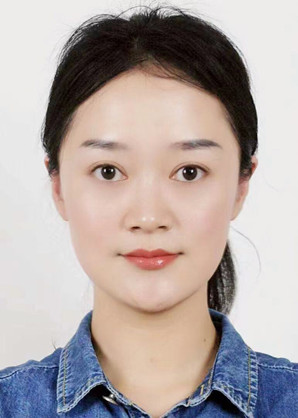
Wenzhao Wang is currently a lecturer in School of Information Science and Engineering, Wuhan University of Science and Technology, China. She received her Ph.D. from School of Optical and Electronic information, Huazhong University of Science and Technology in 2021, majoring in Microelectronics and Solid State Electronics. During pursuing Ph.D. degree, she went to University of Oxford as recognised student, working on project related to the applications of two-dimensional materials. Her current research interests lie in nano semiconductor materials, including quantum dot, two-dimension (2D) layered materials, and the application of nano semiconductor materials in photoelectric, microelectronic devices and sensors, and combination of new nano semiconductor materials and traditional silicon technology. She lead a research group that investigates nano semiconductor materials and their application in electronics, optoelectronics devices and sensors. Focus is on low dimensional materials such as 2D crystals of graphene, MoS2, WS2, In2S3 and Boron Nitride. She has published over 10 SCI papers and has got over 10 authorized patents until now. The contact address is School of Information Science and Engineering, Wuhan University of Science and Technology, Heping Avenue No. 947, Wuhan City, Hubei Province, China, 430081. Tel: 86-13871677186. Email: wenzhaowang@wust.edu.cn.
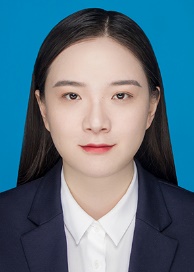
Fang Yang is currently an associate professor at Wuhan University of Science and Technology. She received her Ph.D. degree in applied mathematics from the University of Paris Dauphine in France in October 2017, and then joined the School of Information Science and Engineering at Wuhan University of Science and Technology. She was selected as the "Chutian Young Scholar" of Hubei Province. Her research interests include geodesic method, image restoration, change detection, multi-modal data fusion.
Email:yangfang.idif@wust.edu.cn; fangyang.whu@gmail.com

Jingwen Yi received the Ph.D. degree in Control Science and Engineering from Huazhong University of Science and Technology, Wuhan, China, in 2016. She was a Visiting Student with Nanyang Technological University, Singapore, from September 2014 to May 2015. In April 2016, she joined the Wuhan University of Science and Technology, Wuhan, China, where she is currently an Associate Professor with the School of Information Science and Engineering. Her research interests include cooperative control of multi-agent systems, distributed optimization, and graph signal processing. She has published more than 40 papers in international journals and conferences such as IEEE TAC, Automatica, IEEE TCYB, INS, etc. Dr Yi is a Member of IEEE, a Member of Youth Work Committee of Chinese Institute of Command and Control, a Member of Swarm Intelligence and Cooperative Control Committee of Chinese Institute of Command and Control. She was awarded "Chutian Young Scholar" in Hubei Province, and received the "Poster Award" from the 30th China Control Conference. Email: yijingwen@wust.edu.cn
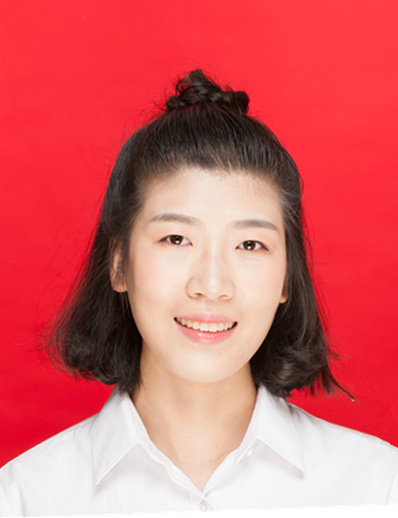
Xiaokang Zhang (Senior Member, IEEE) received the Ph.D. degree in photogrammetry and remote sensing from Wuhan University, Wuhan, China, in 2018. From 2019 to 2022, he was a Post-Doctoral Research Associate with The Hong Kong Polytechnic University, Hong Kong, and The Chinese University of Hong Kong, Shenzhen, China. Since 2023, he has been a specially appointed Professor at the School of Information Science and Engineering, Wuhan University of Science and Technology, Wuhan. He has authored or co-authored more than 40 scientific publications in international journals and conferences, including two ESI highly cited papers. Dr. Zhang is currently a reviewer for more than 30 renowned international journals and serves as a Guest Editor for REMOTE SENSING. His research interests include remote sensing image analysis, AI for earth observation, data fusion and machine learning. For more information, please visit https://xkzhang.info.
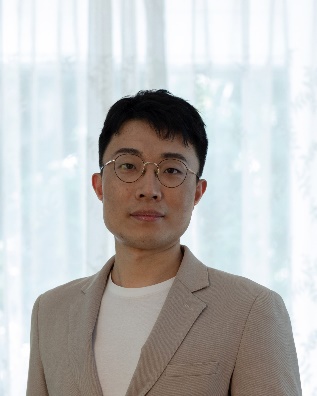
Yuntao Zhao, born in 1982, is professor of the School of Information Science and Engineering, Wuhan University of Science and Technology. Participated in 2 projects of the Ministry of Science and Technology , 4 projects of the provincial levels. Implemented more than 40 research projects and engineering projects. As the first or corresponding author, 50 papers were been published , and 16 national invention patents have been granted . Main research directions are 3D machine vision, optical 3D measurement, robotics, etc.
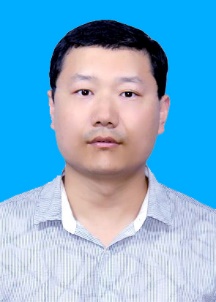
Zhenhua Zhu received the Ph.D. degree in control science and engineering from the Huazhong University of Science and Technology, Wuhan, China, in 2021. He is currently a lecture with the School of Information Science and Engineering, Wuhan University of Science and Technology. His research interests include distributed estimation/control/optimization, robot manipulator control, spacecraft attitude control, and prescribed-time control.
E-mail: zhenhua_hust2016@163.com; zhuzhenhua@wust.edu.cn.
